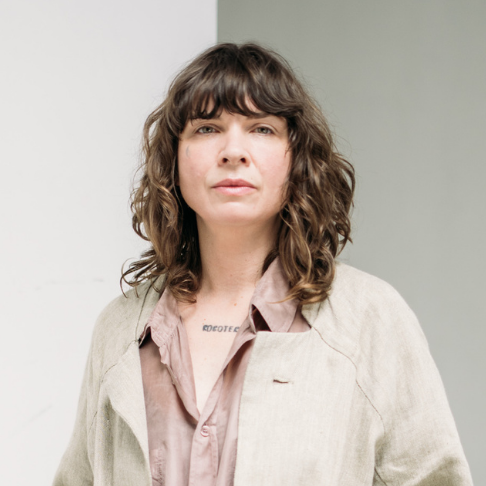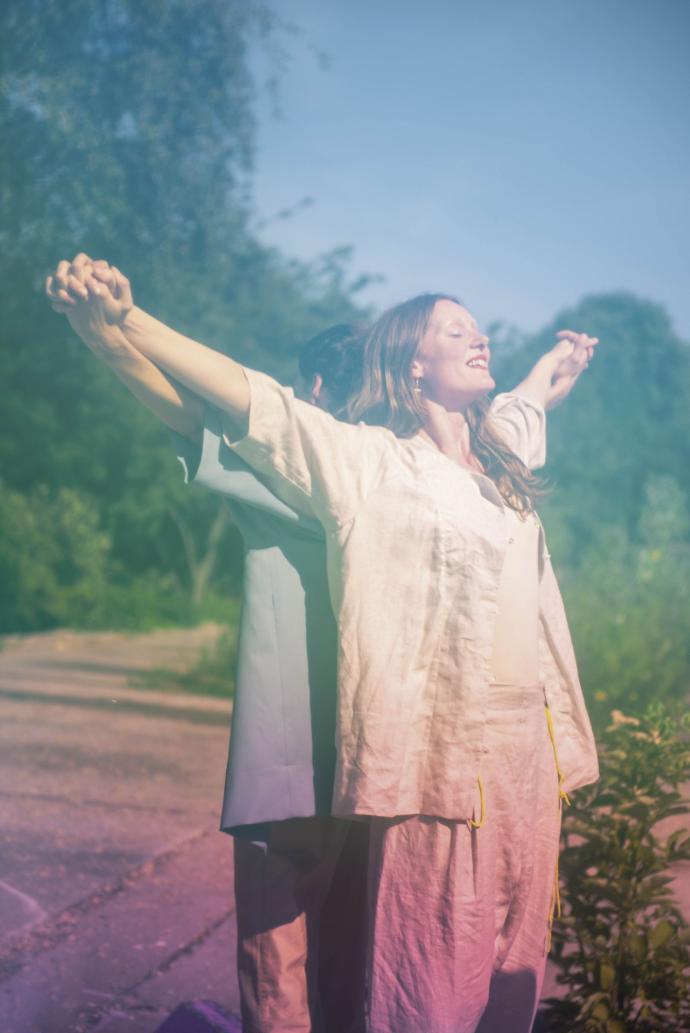ABOUT US
House of All is not an ordinary brand, it is a holistic model for the stewardship of clothing - an agency for local circular textiles with the MISSION to make sustainable circular clothes affordable and accessible to ALL.
THE VISION is a local circular economy, where clothes are designed according to principles of circularity globally, adopted, produced and used in small communities locally (cosmo-local manufacturing).
This promotes regional needs and reduces the influence of mass production.
To achieve this, we look at principles of commoning and the values of open source. Similar to Solidarity Agriculture, we want to share the costs and use the resources collectively.
Transparent designs and community participation can reduce development costs and promote sustainable fashion.
We openly share knowledge about textile processes, open design implementation and production files involving more and more designers, makers and alike who can contribute to the open source designs, share their knowledge through workshops, or sell or rent their products through our store.
Meanwhile we are trying to figure out how to revive local production in textiles, and develop strategies to get more people on board of this mad idea...
So why not join?
THE VALUES
LET'S ALL CELEBRATE CREATION
CIRCULAR
Following nature we follow circular pinciples in everything we do. That means we are conscious to reuse, repair & recycle everything and keep it in a closed loop. Because we
love our Earth, and have no Planet B
REGIONAL
We believe in strong communities. Our goal is to decentralise fashion and become radically regional. For now we are just glad to use European materials with few exceptions. If we
may save valuable materials from wasteland we support our local dealer and let you know. The transormation requires a shift in consumerism, breaking the global supply chain and involves research into new materials.
EARTH LOGIC
As opposed to Growth Logic. We follow the urge and love Earth enough to put HER first in all decision making. The plan suggests an uncompromising deadline of ten years until all
resource consumption must be reduced by factor 4-20, that‘s 75% - 95%. And they know! (Fletcher, K. & Tham, M (2019): Earth Logic. Fashion Action Research Plan, London, The J.J.
Charitable Trust https://www.earthlogic.info)
AUTHENTIC
What you see is what you get. We are all working on the same plan and have no time for selling „cats in bags“ or brainwashing you into buying stuff you don‘t need with false promises. Remember, we don‘t want to sell anything, really. It‘s share, wear & care.
TRANSPARENT
We share our secrets and make information available to you
regarding everything from company internals to supply chain.
Because we strongly believe you should know since these
details are empowering you.
INCLUSIVE
House of All is for all humans. Applying our community based
design method means you all can get involved. House of All aims to make sustainable clothing affordable & accessible to all of you. Every single one, no matter what background, age, size or political views you have (no time for fascist, racist, homophobic behaviour EVER)
OPEN SOURCE
Open source is a powerful way of cocreation not only enhancing product feasibility through crowd development but also creating emotional value: being the creator of something implies personal commitment to care
NOURISHING
From relationships to nature, materials, machines, education and research: we believe in the interconnectivity of all, in resonance. So for best results let‘s strive to foster healthy development of all: ourselves as well as everyone and everything else around. It also means we are keen to help educate young humans to aid a better understanding of global supply chain issues and related implications, foremost though to offer ways to act and change the system that‘s destroying their future.

Sarah Prien, Instigator
"When I did my MA in fashion in 2017, I had already known for a long time that I wanted to do a lot of things differently than usual in the fashion industry. Nevertheless, I first began to simply work on a label: Design markets, small pop-ups, festivals, all-night sewing sessions. All this in parallel to running the coworking space for fashion (Formschoen. Raum für Design), which I founded in 2014 just prior to my BA. At the time, one of the tenants was Mohammad, a Syrian tailor who had just arrived in Hamburg with his family, who couldn't get his training recognized in Hamburg but was determined to start his own business as a tailor. He was very supportive, and in return I tried to help him with bureaucratic challenges and help him become self-employed. He is now a truck driver so that he can support his family. I quickly realized that this could not be the case. The conflicting goals had to be resolved somehow: How can sustainable clothing be affordable and the ever-growing need for new things be satisfied responsibly? How can we restore the value and connection with fashion as part of our everyday culture? How can we disrupt the global centralized supply chain altogether and strengthen local craftsmanship, provide new opportunities for the many skilled local people? "
